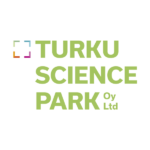ScanBalt EU Research Support Digest

The ScanBalt EU Research Support Digest informs about relevant open research funding schemes and other financial sources. The last phase for Horizon 2020 is ongoing. Latest calls came out in October 2018. See details on the different calls below. More information can be found following the hyperlinks.
If you would like to involve the leading macro-regional accelerator ScanBalt in a project idea please contact . Do you need support in finding the right topic, partner or need further information and assistance? Contact the Steinbeis Team , who is the EU funding advisor for ScanBalt.
Societal challenge 1: Health, demographic change and wellbeing
DIGITAL TRANSFORMATION IN HEALTH AND CARE
Deadline 24 April 2019
• SC1-DTH-01-2019: Big data and Artificial Intelligence for monitoring health status and quality of life after the cancer treatment
• SC1-DTH-05-2019: Large scale implementation of digital innovation for health and care in an ageing society
• SC1-DTH-09-2019: Scaling up the univocal Identification of Medicinal Products
• SC1-DTH-10-2019-2020: Digital health and care services
• SC1-DTH-11-2019: Large Scale pilots of personalised & outcome based integrated care
• SC1-HCC-02-2019: Support for the large scale uptake of open service platforms in the Active and Healthy Ageing domain
BETTER HEALTH AND CARE, ECONOMIC GROWTH AND SUSTAINABLE HEALTH SYSTEMS
Deadline single stage 16. April
• SC1-BHC-07-2019: Regenerative medicine: from new insights to new applications
• SC1-BHC-10-2019: Innovation Procurement: Next generation sequencing (NGS) for routine diagnosis
• SC1-BHC-13-2019: Mining big data for early detection of infectious disease threats driven by climate change and other factors
• SC1-BHC-28-2019: The Human Exposome Project: a toolbox for assessing and addressing the impact of environment on health
• SC1-BHC-31-2019: Pilot actions to build the foundations of a human cell atlas
• SC1-BHC-32-2019: Towards a next generation influenza vaccine to protect citizens worldwide – an EU-India collaboration
• SC1-HCO-01-2018-2019-2020: Actions in support of the International Consortium for Personalised Medicine
• SC1-HCO-15-2019: Support for the functioning of the Global Research Collaboration for Infectious Disease Preparedness (GloPID-R)
TRUSTED DIGITAL SOLUTIONS AND CYBERSECURITY IN HEALTH AND CARE
Deadline 14 November 2018
• DT-TDS-01-2019: Smart and healthy living at home
Societal challenge 2: Food security, sustainable agriculture and forestry, marine and maritime and inland water research and the bioeconomy
SUSTAINABLE FOOD SECURITY
Deadline 23. Jan 2019
• CE-SFS-24-2019: Innovative and citizen-driven food system approaches in cities
• CE-SFS-39-2019: High-quality organic fertilisers from biogas digestate
• DT-SFS-26-2019: Food Cloud demonstrators
• LC-SFS-17-2019: Alternative proteins for food and feed
• LC-SFS-19-2018-2019: Climate-smart and resilient farming
• LC-SFS-20-2019: European Joint Programme on agricultural soil management
• LC-SFS-34-2019: Food Systems Africa
• SFS-01-2018-2019-2020: Biodiversity in action: across farmland and the value chain
• SFS-04-2019-2020: Integrated health approaches and alternatives to pesticide use
• SFS-05-2018-2019-2020: New and emerging risks to plant health
• SFS-08-2018-2019: Improving animal welfare
• SFS-11-2018-2019: Anti-microbials and animal production
• SFS-12-2019: A vaccine against African swine fever
• SFS-23-2019: Integrated water management in small agricultural catchments
• SFS-28-2018-2019-2020: Genetic resources and pre-breeding communities
• SFS-30-2018-2019-2020: Agri-Aqua Labs
• SFS-31-2019: ERANETs in agri-food
• SFS-35-2019-2020: Sustainable Intensification in Africa
• SFS-37-2019: Integrated approaches to food safety controls across the food chain
RURAL RENAISSANCE
Deadline 23. Jan. 2019
• CE-RUR-08-2018-2019-2020: Closing nutrient cycles
• CE-RUR-10-2019: Circular bio-based business models for rural communities
• LC-RUR-11-2019-2020: Sustainable wood value chains
• RUR-01-2018-2019: Building modern rural policies on long-term visions and societal engagement
• RUR-04-2018-2019: Analytical tools and models to support policies related to agriculture and food
• RUR-15-2018-2019-2020: Thematic networks compiling knowledge ready for practice
• RUR-16-2019: Fuelling the potential of advisors for innovation
• RUR-17-2019: Reinforcing the EU agricultural knowledge base
• RUR-18-2019: Support to the BIOEAST initiative: boosting knowledge and innovation-based bioeconomies
BLUE GROWTH
Deadline 23. Jan 2019
• BG-05-2019: Multi-use of the marine space, offshore and near-shore: pilot demonstrators
• BG-07-2019-2020: The Future of Seas and Oceans Flagship Initiative
• BG-08-2018-2019: All Atlantic Ocean Research Alliance Flagship
• CE-BG-06-2019: Sustainable solutions for bio-based plastics on land and sea
• DT-BG-04-2018-2019: Sustainable European aquaculture 4.0: nutrition and breeding
• LC-BG-09-2019: Coordination of marine and maritime research and innovation in the Black Sea
Future and Emerging Technologies (FET)
FET Open aims to establish European leadership in the early exploration of future technologies. It looks for opportunities of long-term benefit for citizens, the economy and society. It aims to mobilise Europe’s most creative and forward thinking researchers from all disciplines to work together and explore what may become the leading technology paradigms of the future.
FET Open supports early stage science and technology research exploring new foundations for radically new future technologies by challenging current paradigms and venturing into unknown areas. A bottom-up selection process widely open to any research idea builds up a diverse portfolio of new research directions. Early detection of promising new areas, developments and trends, along with attracting new and high-potential research and innovation players, are key factors.
FET-Open Challenging Current Thinking
cut-off-date: 24 January 2019, 18 September 2019
FET Innovation Launchpad
cut-off-date: 08 October 2019
Fast Track to Innovation (FTI)
FTI accelerates the market uptake of ground-breaking innovations by providing funding in an open, accessible scheme that nurtures ideas from consortia of innovators of all types and sizes from across Europe.
Proposals must relate to any field of H2020 under the specific objective “Leadership in enabling and industrial technologies” and/or to any of the specific objectives under the priority “Societal challenge”.
Next cut-off-dates: 21 February 2019, 23 May 2019
SME Instrument
SMEs are invited to submit proposals under the SME instrument at any time within all Societal Challenges and Leadership in Enabling and Industrial Technologies areas. Depending on which phase you are interested to apply for (Feasibility study Phase 1, from concept to market Phase 2), the following next cut-off days exist:
SMEINST-Phase1: Next cut-off-dates: 13 February 2019
SMEINST-Phase2: Next cut-off-dates:, 10 January 2019, 14 March 2019
FOR A BETTER INNOVATION SUPPORT TO SMEs
There is a wide range of public sector support through grants, subsidised loans, equity, and innovation support services. Yet SMEs are often dissatisfied with these, while at the same time the public expects a higher return from the support provided.
These calls of the programme “INNOSUP” are one element of a broader action to address these challenges and develop the ecosystem of innovation support to SMEs in Europe. Generally, the actions are designed to provide opportunities to Member States and regions to enhance their services through collaboration, and peer-learning. The emphasis is on further testing new approaches for better innovation support, such as blockchain technologies, workplace innovation, a network for Open Innovation, training on advanced manufacturing, experimentation in innovation agencies and a tool for investors in financing SMEs.
• INNOSUP-01-2018-2020: Cluster facilitated projects for new industrial value chains
• INNOSUP-02-2019-2020: European SME innovation Associate – pilot
• INNOSUP-04-2019: Workplace innovation uptake by SMEs
• INNOSUP-05-2018-2020: Peer learning of innovation agencies
THE BIOECONOMY IN THE NORTH (BIN) PROGRAM
BIN is a network of ministries and funding agencies from Finland, Germany and Norway which coordinate their efforts to launch annual calls for R&D&I projects in the area of non-food / non-feed biomass resources exploitation. The primary scope of the initiative is to support research and innovation leading to new products and supply services from non-food / non-feed biomass resources relevant in Northern Europe.
Projects should significantly contribute to at least one of the three following topics:
Forest Biomass Production
• Improved forest biomass, focusing for example on production via accelerated breeding
• Innovative breeding, cultivation, harvest and storage systems allowing a more integrated natural resource management and resource planning
Lignocellulosic Biomass Conversion
• Improved biomass conversion and valorization, focusing for example on chemicals, fibers and innovative products
• New and innovative production and value chains
Valorization and Governance Strategies and Policy Instruments for Sustainable Bioeconomy Development
• Analysis for better matching biomass demand and supply (policy information)
• Analysis and development of existing / new markets and business models
• Policy analysis and impact assessment in light of responsible research and innovation (RRI)
The deadline for proposal submission will be January 17th, 2019
More information can be found at www.bioeconomy-in-the-north.eu/call1
Interreg South Baltic Programme – 6th call
It aims at unlocking South Baltic’s potential for blue and green growth through cross-border cooperation between local and regional actors from Denmark, Germany, Lithuania, Poland and Sweden.
The call is open only for the following specific objectives:
• Specific objective 2.2: “Increased use of green technologies in order to decrease the pollution discharges in the South Baltic area”
• Specific objective 3.1: “Improve the quality and environmental sustainability of transport services in the South Baltic area”
• Specific objective 4.1 “Increase the share of skilled labour force working in blue and green economy sectors of the South Baltic area through joint cross-border actions”
• Specific objective 5.1: “Improve the cooperation capacity of local South Baltic area actors through participation in cross-border networks”
Deadline is on 18 December 2018, more information can be found here:
https://southbaltic.eu/-/6th-call-for-proposals-is-open-until-18-december-20-1












